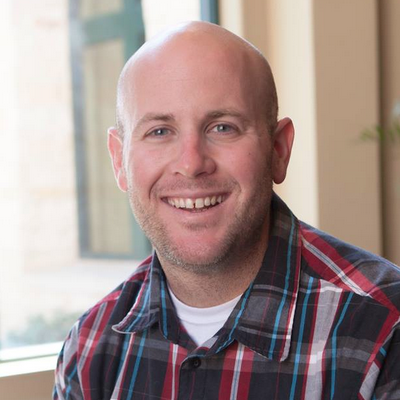by David Hanson | Feb 12, 2015 | On the Job, The Youth Ministry Blog
Middle schoolers are real people. I know that may shock some readers, but it’s true. I’ve actually heard grown adults call middle schoolers “pre-people”. Besides being incredibly demeaning, it implies that young teens aren’t dealing with real life issues yet. Part of this stems from the difficulty middle schoolers have with communicating what’s going on underneath the surface.

I thought I would let you into my world to show you that middle schoolers are facing really difficult situations. Over the past month I’ve become aware of a number of issues that middle schoolers I know are dealing with right now.
Homosexuality – We have a student who just came out to the world via social media. They stopped coming to our group a few weeks ago just before it became public. Our leadership team is figuring out how to show the love of Christ while helping them find their true identity in Jesus.
Self-Harm – I know of multiple students, from great families by the way, who are expressing their emotional struggles by harming themselves. We are walking with the parents to reinforce constructive ways of dealing with their emotions and bringing hope through the Gospel.
Drugs/alcohol – I have students who get offered marijuana EVERY single day at school. Other students have been caught sneaking alcohol at a friends house. One teacher from a local middle school tells me all the time that a handful of students regularly show up to class drunk. Our students are self-medicating to escape and they have access to whatever substance they want.
Pornography – Most teens are exposed to pornography in the middle school years and addiction is common. In addition, I know of students who have consumed pornography that is violent in nature. My heart breaks for those who’s view of sexuality is so distorted.
Family roles – There are students who have to play the parent role for their families because mom or dad can’t or won’t act like the grown-up. They live in a dual world where schools treat them like kids and yet they have to perform as adults at home.
I could really go on and on. The point is this. Your middle schoolers are hurting NOW. They are facing real life NOW. The more you understand this the less satisfied you’ll be with playing babysitter. Middle schoolers need adults who will shine the light of Christ into the convoluted, dark, broken world they are living in every single day.
It all starts with listening. Start asking probing questions to your middle schoolers and listen for the subtle and not-so-subtle clues that show you that there is more going on. After all, young teens are real people, too.
[guestpost]
Kevin Libick is a Middle School Pastor living in Fort Worth, TX with his wife Kara and her two cats. He is a novice banjo picker and expert Hawaiian food eater. Kevin loves to connect with other youth workers and equip them to live out their calling in God’s Kingdom. Kevin loves to connect with and empower youth workers. Connect with Kevin on Twitter: @kevinlibick
[/guestpost]
by David Hanson | Feb 11, 2015 | On the Job, The Youth Ministry Blog
In last weeks post (The Disease Within Student Ministry) I discussed an unnamed disease that has infected many of our ministries. The disease uses a subtle shift of our focus to infiltrate us, and now it’s symptoms have started to manifest at the expense of our students. Over the next few weeks we will place these symptoms under a microscope to observe their effects and discuss possible remedies.

Symptom 1: The focus of raising-up and building student leaders
I listed this as the first symptom because it was the first one that God made me aware of in my own ministry. In Fusion Student Ministry, stewardship is one of the filters that we run every decision through. It is part of the ministry system that we developed to use as a guardrail against our own selfish ambitions. So, the day the Lord rocked me with the conviction that I had started to focus on building leaders and not disciples was equally surprising to me as it was heart breaking.
For as in one body we have many members, and the members do not all have the same function, so we, though many, are one body in Christ, and individually members one of another. Having gifts that differ according to the grace given to us, let us use them: if prophecy, in proportion to our faith; if service, in our serving; the one who teaches, in his teaching; the one who exhorts, in his exhortation; the one who contributes, in generosity; the one who leads, with zeal; the one who does acts of mercy, with cheerfulness. –Romans 12:4-8
One of the problems in focusing on raising-up and building leaders is that we emphasize one gift over another. Remember the commission is to make fully functioning disciples of Jesus Christ who in turn go make other fully functioning disciples of Jesus Christ. A natural part of raising leaders is to lift them up as models within our ministries. This can cripple another student’s desire to pursue Jesus Christ by making them doubt their value within His Kingdom. It can lead other students to compare themselves to the student leader, which often times leads them to a place of feeling inferior.
The hand has a different function than the foot. The eye has a different function than the ear. The knee has a different function than the big toe. Yet, all parts are valued and appreciated. Yes, let’s continue to encourage the growth of leaders, but not at the expense of our other students that are gifted differently. We need to focus on Jesus Christ, His great works, His good will, and our identity as His disciples. Doing this will enable us to better encourage celebrating the diversity of Gods church and our individual roles within it as His beloved children.
A dispute also arose among them, as to which of them was to be regarded as the greatest. And he said to them, “The kings of the Gentiles exercise lordship over them, and those in authority over them are called benefactors. But not so with you. Rather, let the greatest among you become as the youngest, and the leader as one who serves. –Luke 22:24-26
Another problem is that we find ourselves building leaders of worldly principles instead of Kingdom principles. Students often associate leadership with perks, prestige, and greatness. These principles are what the world teaches us, and it takes the revelations of God and the sanctification of His Spirit to break that paradigm. Even so, we can sometimes forget to teach that Kingdom driven leadership is found in serving others with humility, compassion, and mercy. We must stop teaching that leadership is about publicly modeling ministry works and Bible knowledge. We have to get back to teaching about who God is and what it looks like to pick up our crosses and follow Him.
There is so much more to this symptom, I will not even go on to speak of the added stress that we often place on the student leader, or what happens when one of these students fall. Instead, I will remind you that the shift is subtle, and it comes from a place of the best intentions, but it can have retarding effects on our students desire to pursue Jesus Christ. May God bless and sanctify you all.
[guestpost]
Ben Fawcett is a six year student ministry veteran, who is currently serving as the Associate Student Pastor at LifePoint Church in Plano, Texas. He is currently enjoying typing this bio out in third person, and aspires to one day speak in only third person.
[/guestpost]
by David Hanson | Feb 10, 2015 | Podcast, The Youth Ministry Blog
by David Hanson | Feb 4, 2015 | On the Job, The Youth Ministry Blog
One of the things all Student Ministries deal with is constant change. Every year we graduate a class of seniors and inherit a new class of sixth (or seventh) graders. The reality is we lose some of our more mature disciples, while adding to the numbers of our more immature disciples.

So that would be addition by subtraction…. my bad, I meant subtraction by addition. This is the constant cycle of turnover that we face as student disciple makers, and as the cycle turns it brings a subtle shift to our focus. We position a new class of seniors to take the reins of student leadership, and seek to integrate a new group of sixth graders into our ministry.
In essence we focus on leadership development, and student congregation retention. That makes sense too, because we want the older student leaders to model a mature faith to the younger ones, while trying to make sure we retain all our newbies. After all, today’s newbies are tomorrow’s student leaders within our ministries. So we seek to establish a cycle of continuous leadership development and number retention/growth.
This subtle shift of focus can even occur within the most structured Student Ministry, but I think it is in this ever so subtle shift of focus that a disease has infiltrated us. This disease has distracted us from our mission of seeing God glorified and enjoyed in the lives of our students and youth workers. It’s a disease that consumes every facet of Student Ministries, which includes our volunteer youth workers, how/what we teach, the execution of our small groups, and most importantly our students understanding of the supremacy of Jesus Christ.
I don’t have a name for this disease, but I know its symptoms. The symptoms are all concerned with how or what we focus on. Focus requires attention, applied energy, and an investment of time. What you focus on and how you focus on it will directly impact your students and volunteer youth workers, which in return will create your culture.
Here are some of the symptoms I have observed:
Symptom 1: The focus of raising-up and building student leaders
Do we want student leaders? Yes, we absolutely want them. Are we called to make leaders? No, we are called to make disciples of Jesus Christ that operate out of their faith in who He is and His great works.
Symptom 2: The focus of retaining students
Do we want all of our students along with their family and friends to come to know, love, and worship the Lord God? Yes, we desperately desire that. So shouldn’t we focus on doing everything we can to make sure the students don’t just return but return with their friends? No, we should focus on making disciples that go into their peer groups to make disciples.
Symptom 3: The focus of developing behaviors
Do we want our students to behave in a manner that reflects their faith? Yes, behavior is important. Then shouldn’t we teach behavior based lessons? No, the basis of all our teachings should be God, His works, and our new found identity in Jesus Christ.
Symptom 4: The focus of placing students first
Wait, we are a student ministry aren’t we? Absolutely, we love our students and hope to see them saved and sanctified. Then we should place our students first in our ministries? Absolutely not, we are disciples of Jesus Christ, and therefore He always comes first.
Remember the shift is subtle, and it grows out the best of intentions, but it can have retarding effects on our students desire to pursue Jesus Christ. In the coming posts I will further discuss my observations of these symptoms, their effect on our ministries, the Word of God that my views flow from, and what I think we can do to overcome this disease.
[guestpost]
Ben Fawcett is a six year student ministry veteran, who is currently serving as the Associate Student Pastor at LifePoint Church in Plano, Texas. He is currently enjoying typing this bio out in third person, and aspires to one day speak in only third person.
[/guestpost]
by David Hanson | Feb 3, 2015 | On the Job, The Youth Ministry Blog
What does it mean to suffer? Why does God allow me to suffer? Why would God call me to suffer? As we grow up into our relationship with God we seem to struggle with the answer to these questions.

While the kingdom of this world invites us into a never-ending pursuit of more, the Kingdom of God invites us into a never-ending pursuit of Christ Himself. This venture then proves to be way more costly than we could have ever imagined. Living for the Kingdom of God, at least the way the Bible details it, is difficult and counter-cultural.
Our students struggle with this concept.
As Youth Pastors, we need to prepare our students to identify themselves as “suffering sojourners.” You could also use the synonym “afflicted aliens.” This definition is taken from a combination of 1 Peter 2:11 and 1 Peter 4:12-16.
“Beloved, I urge you as sojourners (aliens) and exiles (strangers) to abstain from the passions of the flesh,which wage war against your soul.” -1 Peter 2:11
Are we preparing students to view themselves and live as aliens and strangers in a foreign land?
The relationship that we have with the creator of the universe calls us into radical abandon of what this world deems important, and into radical obedience to the counter-cultural will and way of the Father. Students must understand that outside the full-presence of God, we are not home. This is not where we were created to be. Sin has separated us and this fallen world draws us away from His presence. We are temporary residents in a foreign land who long to be home, and lovingly invite others to join our pilgrimage.
Beloved, do not be surprised at the fiery trial when it comes upon you to test you, as though something strange were happening to you. But rejoice insofar as you share Christ’s sufferings, that you may also rejoice and be glad when his glory is revealed. If you are insulted for the name of Christ, you are blessed, because the Spirit of glory and of God rests upon you. – 1 Peter 4:12-14
I love this passage because it normalizes suffering for the cause of Christ. Peter essentially says, “Don’t act like suffering is strange and unexpected! If the world came after Jesus, it’ll come after you!” Peter then goes on to say that if we are insulted for our belief in Jesus, we are blessed with the presence of the Spirit!
I’ve noticed two types of students: Those who want to blend in, and those who want to stand out for their own glory. It is rare to see students standing up for something other than their own glory or edification, but this is precisely the type of disciple we are trying to cultivate. We want to see students who are unashamed of the gospel (enter Lecrae song), and the ramifications of following faithfully.
Instead of blending in, we want students who boldly (whatever that looks like for them) proclaim the gospel in word and deed. Instead of bringing glory to themselves, we want student who direct that glory where it is due. This process is equally difficult for our extroverts and introverts.
Living as a alien, standing out, not settling in, not going with the status quo, not giving into cultural norms, transforming culture, getting uncomfortable, getting made fun of, standing up for truth, and pointing others to The Truth is no small task.
But Jesus is worth it.
How are you encouraging students to be suffering sojourners? Comment Below.
[guestpost]
David Hanson: Texas native, Texas Tech Red Raider, M.Div. at Truett Seminary, husband to Ashley, father to Ava & Ben, Student Pastor at LifePoint Church in Plano, Tx, table tennis (ping-pong) extraordinaire, addicted to coffee. For anything else…you’ll just have to ask.
[/guestpost]







